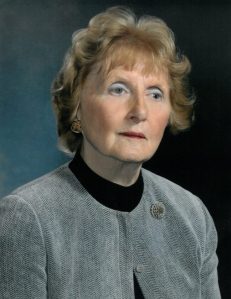The famous quote in the title is almost universally attributed to Mark Twain. It’s often said that history repeats itself. Twain supposedly took a different tack, suggesting that while it doesn’t repeat itself, it often rhymes.
As with many famous quotes, the person being quoted likely didn’t say it. Twain (nee Samuel Clemens) died in 1910 and apparently the first time he got credit for the saying was sixty years later, in 1970. That doesn’t mean he didn’t say something like it. Indeed, in the 1874 novel The Gilded Age: A Tale of Today, co-written with his neighbor, he did begin a more flowery sentence with a variation of the first clause: “History never repeats itself, but the Kaleidoscopic combinations of the pictured present often seem to be constructed out of the broken fragments of antique legends.”
It’s a good saying no matter who originated it. Essentially it suggests that events may not occur again in exactly the same way but there often are enough similarities to make it seem like a spot of deja vu. In a practical sense, studying history can give us insights into present and potential future outcomes.
This idea has popped up a lot in recent years among Abraham Lincoln and 19th-Century historians. The antebellum era of white supremacy being used as a tool by a small number of super-wealthy aristocrats in the South to manipulate the working classes is eerily familiar today. Texas and others have again started chattering about secession. A small number of people holding massive amounts of populist power have again begun to delegitimize political and social institutions because, and here’s the rhyming, those same people realize they have lost control of the federal government. Just as slaveholding plantation owners who had controlled the federal government since its inception realized they were losing that control decided to split the country to create a subsidiary that they could continue to control, we now see a minority harkening back to the 1800s seeking to manipulate the institutions to serve themselves rather than the public at large.
I Googled Abraham Lincoln news on Monday just prior to a bimonthly editorial meeting searching for stories we can highlight on the Lincolnian website. Not surprisingly, there were dozens of stories about the assassination (Lincoln was shot the night of April 14th and died the next morning). Among them was a video of presidential historian (and buddy of both Bushes and Biden) Jon Meacham referring to Lincoln’s speech most often referred to as the Lyceum Address. The actual title was “The Perpetuation of Our Political Institutions.” In it he decries mob rule and the use of violence and intimidation to get what you can’t get in the voting booth. He also notes that the United States could not be overtaken by foreign adversaries, but rather from within:
At what point then is the approach of danger to be expected? I answer. If it ever reach us it must spring up amongst us; it cannot come from abroad. If destruction be our lot, we must ourselves be its author and finisher. As a nation of freemen, we must live through all time or die by suicide.
Lincoln was warning that the greatest danger to America would rise from within. Meacham reminded us that the rise of a tyrant could happen today. In fact, he noted emphatically, that is exactly the situation we find ourselves in at this moment. Virtually every historian of the antebellum, Civil War, Reconstruction, and Jim Crow eras sees the rhyming taking place as we speak. At what point then is the approach of danger to be expected? Lincoln asked. Meacham and historians answer: The danger has arrived.
There is another, much less serious, historical rhyme. Last April I conducted a road trip to several New England states as part of research for a work in progress. I hopped on a sailing cruise immediately after my return. This April I flipped the rhyme – a different sailing cruise came first, followed by another New England road trip to collect more information. In between I hosted a Lincoln Group event featuring a semi-famous speaker in the Lincoln field.
Mark Twain may have been right. Adding humor to insight. He must be quite bright.
I have a ton of things going on right now in the Lincoln and travel worlds, hence the gap since my last post. Some big news should be on the horizon, so check back soon.
Lincoln: The Fire of Genius is available for purchase at all bookseller outlets. Limited signed copies are available here. The book is also listed on Goodreads, the database where I keep track of my reading. Click on the “Want to Read” button to put it on your reading list. If you read the book, please leave a review and/or rating.
You also follow my author page on Facebook.
David J. Kent is President of the Lincoln Group of DC and the author of Lincoln: The Fire of Genius: How Abraham Lincoln’s Commitment to Science and Technology Helped Modernize America and Lincoln: The Man Who Saved America.










